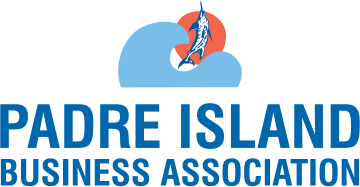As COVID-19 restrictions slowly lift around the nation following mass vaccination events and a declining positivity rate, many people are eagerly anticipating the return of in-person events and festivals. However, many venues still limit the number of tickets available for an event, creating stiff competition to obtain one.
The internet provides countless opportunities for people to find tickets by connecting with online marketplaces, ticket sellers, and resellers. Unfortunately, the growth and popularity of this industry make it an ideal location for scammers to try and sell fake tickets. Last year, Better Business Bureau received over 200 reports on BBB Scam Tracker regarding fake ticket scams for various events. With more venues opening back up to full capacity in 2021, the rate of ticket scams is expected to increase.
BBB and the National Association of Ticket Brokers (NATB) are working to raise awareness and educate fans about the smartest ways to buy tickets on the secondary resale market to combat fake ticket scams:
- Purchase directly from the venue whenever possible. Many consumers automatically go straight to a secondary resale market to purchase tickets for an upcoming event before first checking with the venue. Going directly to the venue may not only save money but is also a way to make sure that a purchase is for a valid, available ticket. Venues often include what secondary resale organization they are listing their tickets on, giving consumers an additional layer of protection from purchasing fake tickets.
- Consider your source. There is a large difference between purchasing a ticket from a professional ticket broker and a ticket scalper. While dealing with the latter may result in obtaining valid tickets, the risk of encountering a scammer is significantly greater. Always exercise caution when purchasing from sources who are not members of NATB or Better Business Bureau.
- Research the seller/broker. Brokers who are members of NATB offer a 200% purchase guarantee on tickets, protecting consumers who use their services. Visit NATB.org to confirm you are purchasing a ticket from a NATB-member resale company.
- Check for website encryption. Make a habit of always checking for the lock symbol in the website address that indicates a secure purchasing system protects the site. BBB strongly recommends against giving any banking information to websites that are not secured.
- Know the refund policy. Only purchase tickets from a ticket reseller that provides clear details about the terms of the purchase. Avoid sellers who do not disclose where the seats are located or where tickets can be picked up. If the deal seems “too good to be true,” trust your instincts and thoroughly investigate the seller before purchasing tickets.
- Use protected payment options. Debit cards, wire transfers, and cash transactions are risky due to difficulties in recovering money if the purchase is for invalid tickets. BBB recommends using credit cards for all online purchases due to the additional protections they offer consumers to obtain a refund.
- Verify tickets. If you doubt the authenticity of an obtained ticket, present it to the “Will Call” or customer service center of the venue hosting the event. They will inform you if the ticket is legitimate and explain how a legitimate ticket for their venue should look.
If you have been a victim of a fake ticket scam, report it to BBB Scam Tracker. Information provided could prevent another person from falling victim.
For more information about ticket scams, visit BBB.org.
